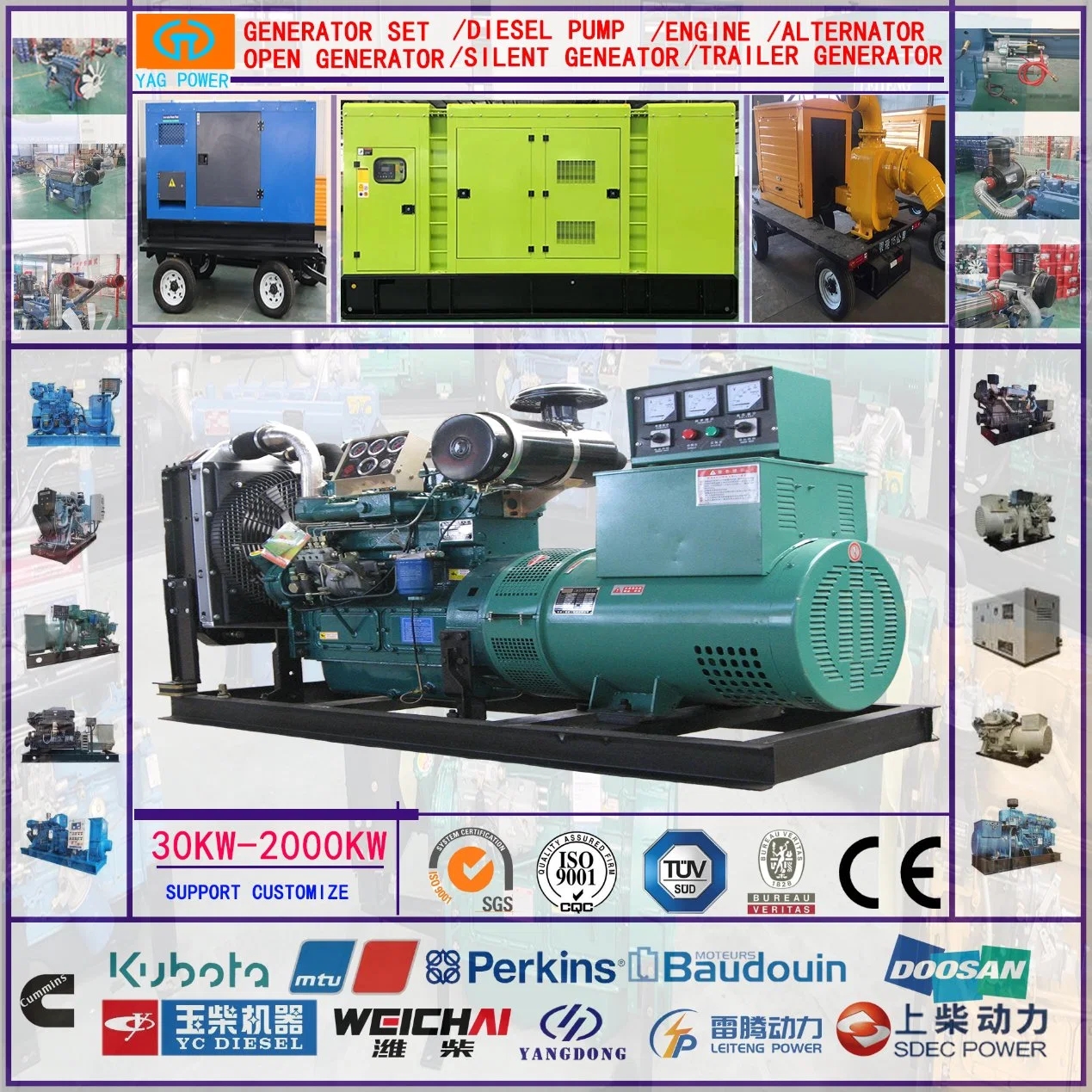Diesel Generator for Transient Loads An In-Depth Analysis
Introduction In today's world, electricity plays a vital role in powering various devices and equipment. However, the grid system may not always be able to meet the sudden surge in power demand caused by transient loads. This is where diesel generators come into play, providing a reliable and efficient solution for handling such fluctuations. In this article, we will delve into the intricacies of diesel generators for transient loads, exploring their working principles, applications, advantages, and considerations. Working Principles of Diesel Generators Diesel generators operate on the principle of converting mechanical energy into electrical energy through the combustion of diesel fuel. The basic components of a diesel generator include an engine, alternator, fuel system, cooling system, and control panel. When the generator is started, the engine consumes diesel fuel, which is ignited in the combustion chamber. This combustion process generates mechanical energy, which drives the alternator to produce electricity. For transient loads, diesel generators are designed to respond quickly to sudden changes in power demand. The engine speed is regulated by a governor system that adjusts the fuel supply to meet the varying load requirements. This ensures that the generator can ramp up or down its output rapidly, making it suitable for applications with fluctuating loads. Applications of Diesel Generators for Transient Loads Diesel generators are widely used in various industries and settings where a reliable power source is essential. One of the key applications of diesel generators is for transient loads, which are characterized by sudden spikes or drops in power demand. Some common examples of transient loads include motor starting currents, peak power demands in industrial processes, and intermittent power requirements in remote locations. In industrial settings, diesel generators are often deployed to provide backup power during peak demand periods or in the event of grid failures. They can quickly ramp up their output to meet the sudden surge in power requirements, ensuring uninterrupted operation of critical equipment. In construction sites, diesel generators are used to power tools and machinery that have varying power demands, making them ideal for handling transient loads effectively. Advantages of Diesel Generators for Transient Loads Diesel generators offer several advantages when it comes to handling transient loads, making them a preferred choice for many applications. Some of the key benefits include: 1. Fast Response Time: Diesel generators can quickly adjust their output to match the fluctuating power demand, ensuring a reliable power supply during transient load conditions. 2. High Reliability: Diesel engines are known for their robustness and durability, making diesel generators a reliable source of backup power for critical applications. 3. Fuel Efficiency: Diesel engines are more fuel-efficient compared to other types of generators, allowing for cost-effective operation over extended periods. 4. Easy Maintenance: Diesel generators are relatively simple in design and require minimal maintenance, reducing downtime and operational costs. Considerations for Using Diesel Generators with Transient Loads While diesel generators offer many advantages for handling transient loads, there are some considerations to keep in mind when using them in such applications. These include: 1. 400kw diesel generator : It is essential to properly size the diesel generator to ensure it can meet the peak power demands of the transient loads without being oversized, which can lead to inefficient operation. 2. Load Profile Analysis: Conducting a thorough analysis of the load profile is crucial to determine the peak power demands and frequency of transient loads, allowing for the selection of an appropriate generator size and configuration.  3. Maintenance Planning: Regular maintenance and inspection of the diesel generator are essential to ensure optimal performance and reliability, especially in applications with frequent transient load conditions. 4. Fuel Quality: Using high-quality diesel fuel is important to prevent engine issues and ensure efficient operation of the generator, particularly in applications with varying load requirements. Conclusion Diesel generators are a versatile and reliable solution for handling transient loads in various applications, providing fast response times, high reliability, and fuel efficiency. By understanding the working principles, applications, advantages, and considerations of diesel generators for transient loads, users can make informed decisions when selecting and operating these generators in their specific settings. With proper planning and maintenance, diesel generators can effectively meet the dynamic power demands of transient loads, ensuring uninterrupted power supply when it is needed the most.
3. Maintenance Planning: Regular maintenance and inspection of the diesel generator are essential to ensure optimal performance and reliability, especially in applications with frequent transient load conditions. 4. Fuel Quality: Using high-quality diesel fuel is important to prevent engine issues and ensure efficient operation of the generator, particularly in applications with varying load requirements. Conclusion Diesel generators are a versatile and reliable solution for handling transient loads in various applications, providing fast response times, high reliability, and fuel efficiency. By understanding the working principles, applications, advantages, and considerations of diesel generators for transient loads, users can make informed decisions when selecting and operating these generators in their specific settings. With proper planning and maintenance, diesel generators can effectively meet the dynamic power demands of transient loads, ensuring uninterrupted power supply when it is needed the most.